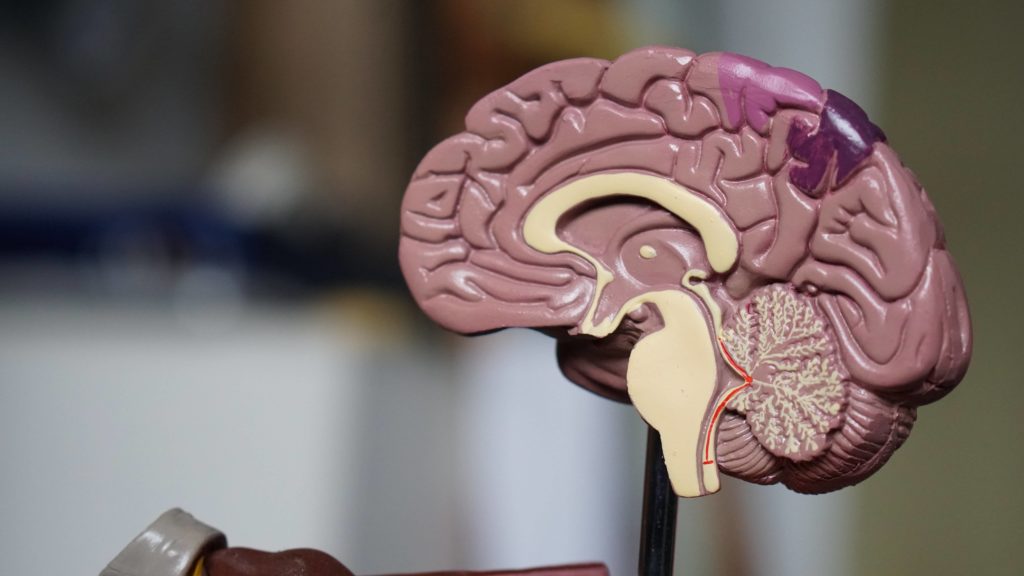
Astaxanthin for Brain Health
Many people’s brains stop functioning properly as they advance in age. Memory loss, cognitive problems, Alzheimer’s disease, Parkinson’s disease, and other brain problems are quite common. Poor diet, stress, poor sleep, alcohol, smoking, ultraviolet radiation, pollution and other lifestyle choices cause excessive production of free radicals which damage brain and nerve cells and cause cognitive disorders. You don’t have to accept such a fate. It is possible to enjoy good brain health and optimize thinking, emotional, psychological, and behavioral functioning at any age. It’s a matter of eating the right foods, avoiding bad habits, and taking supplements that enhance brain health. One incredible supplement to assist this is astaxanthin.
Astaxanthin is a reddish pigment that occurs naturally in Pacific salmon, algae, trout, shrimp, lobster, crab, fish eggs, and other seafoods. It is an antioxidant and anti-inflammatory, and prevents and treats various brain problems. It can easily cross the blood-brain barrier and protect the brain, reducing the risks of neuro-degenerative diseases. Also, it is fat soluble and has an affinity for fatty tissue like the brain, which makes it the best antioxidant for brain health and protection.
Antioxidant and anti-inflammatory
Astaxanthin is the most powerful antioxidant known to date. It contains 550 times the amount of antioxidants in green tea, is 6,000 times more potent than vitamin C, is five times as powerful as beta-carotene, and is 550 times more effective as an antioxidant than vitamin E. A study published in the Journal of Investigative Ophthalmology & Visual Science found that it is effective against oxidative stress caused by nitric oxide.
Astaxanthin’s anti-inflammatory properties are linked to its anti-oxidant activities. It reduces inflammation in the brain in the same way it reduces inflammation in other parts of the body. This prevents or reverses some brain problems as discussed below.
Prevents Alzheimer’s disease
Improves brain health
Through its antioxidant activity, astaxanthin protects the brain against attack by tobacco smoke, chemotherapy drugs, and other toxins. At the same time, it encourages production of neural progenitor cells, promotes healing of the nerves, and improves the brain’s ability to learn and think. It also increases levels of the brain-derived neurotrophic factor (BDNF), a growth factor that is crucial for nerve growth in the brain.
In studies, 12mg/day helped to improve cognitive function and learning rates in individual between 45 and 64 years of age. In another study involving 45-64-year-olds, 8mg/day significantly improved word recall in those under 55, compared to placebo. Another study combined 12mg of astaxanthin with 20mg of tocotrienols and significantly improved concentration, number of errors, clarity of thinking, motivation, and mood while reducing perceived mental and physical fatigue.
Prevents & reduces brain damage after stroke
A stroke can damage many blood vessels that supply blood to the brain, starving certain brain areas of oxygen and nutrients, leading to cell death. Astaxanthin prevents and reduces damage from stroke by relaxing blood vessels, stimulating blood flow, reducing blood pressure, and reducing oxidative stress. This was confirmed by an animal study published in 2010 that gave mice a high dosage of astaxanthin and significantly reduced stroke-related brain damage.
Accelerates recovery from traumatic brain injury
Brain injury can affect brain function and quality of life, and recovery from extensive damage can be difficult. Luckily, astaxanthin can accelerate recovery from traumatic brain injury. It works by reducing swelling through its anti-inflammatory activities, and this improves brain function. If brain injury is extensive, the recovering person may need to take astaxanthin daily for a long time to reap the benefits.